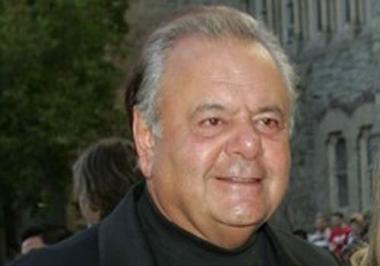After the old Amherst movie house closed its doors 10 years ago, the civic group that revived it intended to create an arts center in which films would share the space with live performance. For various reasons, that didn't happen, but this week live theater comes at last to the Amherst Cinema.
Both Stella in the Bois de Boulogne and Blue Straw Hat are new scripts and both, by sheer coincidence, revolve around encounters in open-air caf?s. In each of them a woman seeks, through trial and error, to find a missing piece of herself.
Stella's title character is Stella Adler, who is remembered as one of the great teachers of the post-war generation of American actors. But in 1934, when the play takes place, she was a member of the gang of young iconoclasts known as the Group Theater. Her parents were Yiddish theater stars, and she inherited from them a flair for the dramatic that made her an arresting presence on- and offstage. According to this play, she also possessed a technically impressive but facile emotional capacity that put her at odds with the Group's director, Lee Strasberg.
In Strasberg's method, which he later developed as The Method, the actor was urged, through reliving emotional memories, to actually experience a character's feelings rather than simply indicating them. It was based on principles espoused by the great Russian director Konstantin Stanislavsky, whose productions aimed for realistic expression and genuine emotion, in contrast to the 19th-century school of extravagant attitudinizing.
The play, currently in development by MIFA, the Massachusetts International Festival of the Arts, takes its cue from a moment of crisis in Stella's artistic life. Discouraged by Strasberg's aesthetic bullying, she finds herself in Paris at a time when Stanislavsky also happens to be there. At first apprehensively, she seeks out the ailing septuagenarian and begins meeting regularly with him at a plein-air caf? in the Paris park that gives the play its title.
These sessions comprise the meat of the play, as master and pupil struggle together toward artistic "truth," surrounded by Stanislavsky's family, his worried doctor and a lurking KGB agent keeping an eye on him on Stalin's orders.
The play continues the age-old friction between Adlerians and adherents of Strasberg's Actors Studio, as it suggests that Strasberg's Method was a distortion of Stanislavsky's (and, by implication, Adler's) more nuanced approach. But it's not a polemic, and while it will surely have special interest to theater people, director Donald Sanders is confident of its wider appeal as "a piece about passionate people seeking the truth."
The script, by Tara Prem and Jane Wood, was given staged readings in New York early this year, with two stars playing Stanislavsky and Stella. Paul Sorvino's best-remembered roles are two criminals, the gangster Paul Cicero in Goodfellas and the statesman Henry Kissinger in Nixon. Mira Sorvino, who won an Oscar for Mighty Aphrodite, was scheduled to appear with her father in Sunday's reading in Amherst, but was unable to travel due to a fragile pregnancy. Her brother Michael is also in it, though, together with a cast of New York professionals, including real Russian expatriates as Stanislavsky's entourage.
Paul Sorvino also gives a master class on Monday April 6 from 7-9 pm in the Rooke Theatre at Mount Holyoke College. It's free for students and staff of Five College theater and film departments to observe, and $5 for the general public. Call (413) 538-2406 for reservations.
*
Ten for the show
Like Stella, the woman at the center of Blue Straw Hat comes hesitantly to a sidewalk caf?, not at all sure she wants to be doing this. In her case, what she's doing is meeting the first of 10 blind dates she endures in the course of the play.
Beryl is a middle-aged divorc?e who has taken the Internet dating plunge because a solicitous friend bought her a "10-connection package" and she feels she has to go through with it. The blue straw hat of the title is the accessory she tells her dates they'll recognize her by.
This is a rare one-person play in which the performer doesn't talk directly to the audience. Instead, we see and hear the other characters only through Beryl's responses to them. At first nervous and over-eager to please, she grows more confident with each disastrous encounter—a 10-step lesson in self-realization.
The guys range from weird to scary, including an obsessive-compulsive hypochondriac, a beer-swigging Red Sox fan with a nuke-'em view of foreign relations, an evangelical who wants her to share "a lifelong relationship" with Jesus, and a precocious teenager who's posted a fraudulent profile and photo.
But there are poignant moments along with the comic and creepy, and playwright Corinne Demas says she wrote the play not only as a satire on cyber-matchmaking, but to explore loneliness, aging and the need for intimacy. As a happily married woman, Demas isn't writing from experience, and she reports that she did some of her research by posting Beryl's profile on Match.com.
The piece is performed by Sarah Wilson and directed by Steve Morgan, both of whom are longtime associates of Hampshire Shakespeare Company. This one ain't the Bard, but its would-be lovers are certainly star-crossed.
Stella in the Bois de Boulogne: April 5, 7 p.m.; Blue Straw Hat: April 6, 7 p.m., Amherst Cinema, 28 Amity St., Amherst, (413) 253-2547, www.amherstcinema.org.



